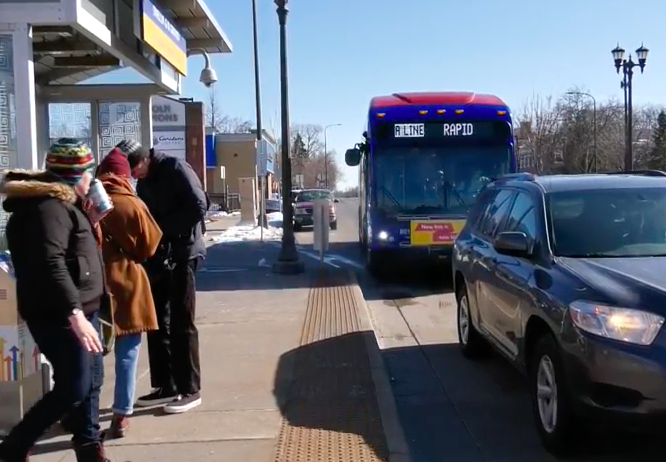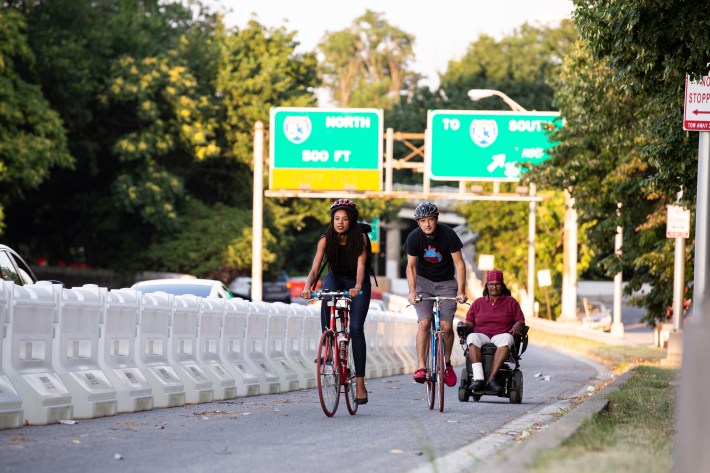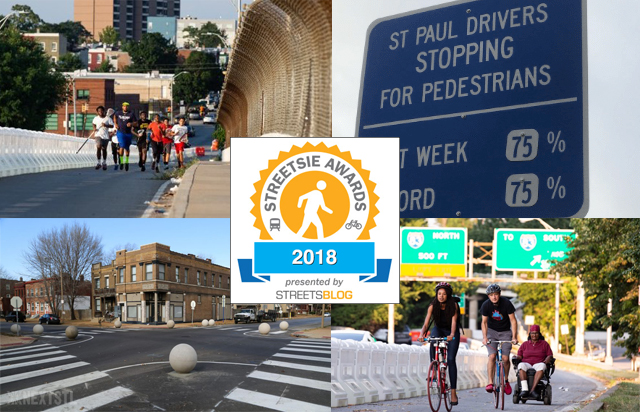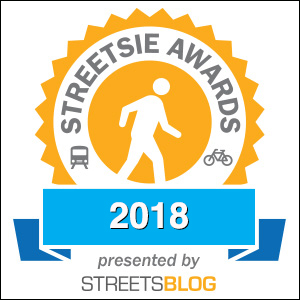The people have spoken (well, voted). Now we're handing out Streetsie awards to those you said embodied the best and worst of 2018.
Most Exciting New Transit: Bye, Bye, Parking Minimums
The trend our readers were most excited about in 2018 was the movement away from forcing builders to provide parking spots by every building. Both Minneapolis and San Francisco moved to do away with parking minimums in their zoning code this year. They follow pioneers Buffalo and Hartford, helping make cities more walkable and housing more affordable by addressing a huge subsidy for car use. We hope to see a few other cities follow suit in 2019.
More than 77 percent of readers agreed that this was the most exciting development of the year.
Best New City Plan: Minneapolis

Minneapolis's bold new comprehensive plan, Minneapolis 2040, was one of the biggest news stories of the year in the urban planning world. Not only did it do away with apartment bans citywide (no more single-family zoning), its transportation elements were equally bold. The plan calls for eliminating minimum parking requirements, boosting housing density near transit and even banning new gas stations city-wide.
Our readers chose Minneapolis more than two-to-one over impressive transportation plans from Portland and Detroit.
Biggest Villain: The Koch Brothers
The billionaire Koch brothers' political network, most notably Americans for Prosperity, upped its attacks on local transit initiatives in 2018. It helped defeat a $5-billion transit expansion package in Nashville, leaving the city mired in traffic with a transit system that is barely usable. It also attacked transit in Phoenix and Tampa. In both cities, the Koch side lost an early round of fighting, but continues to battle against voters' desire for upgraded transit in the courts and through a ballot initiative.
That helped the Koch brothers beat Elon Musk, SUVs and Uber with a whopping 65 percent of the vote for Villain of the Year.
Best Pop-up Demonstration: Baltimore

Everyone give it up for Baltimore, which in 2018 adopted a straightforward, no-nonsense approach to making a dangerous street safe for pedestrians and bicyclists. Baltimore used water-filled highway dividers placed right in the travel lane to create a safe, sheltered walking/biking/wheelchair avenue on Druid Lake Park Drive.
Baltimore really turned out the votes for this project, widely overcoming creative solutions in St. Paul and St. Louis.
[polldaddy poll=10196652]
Thanks for voting and Happy New Year everyone. We'll see you on the second.







